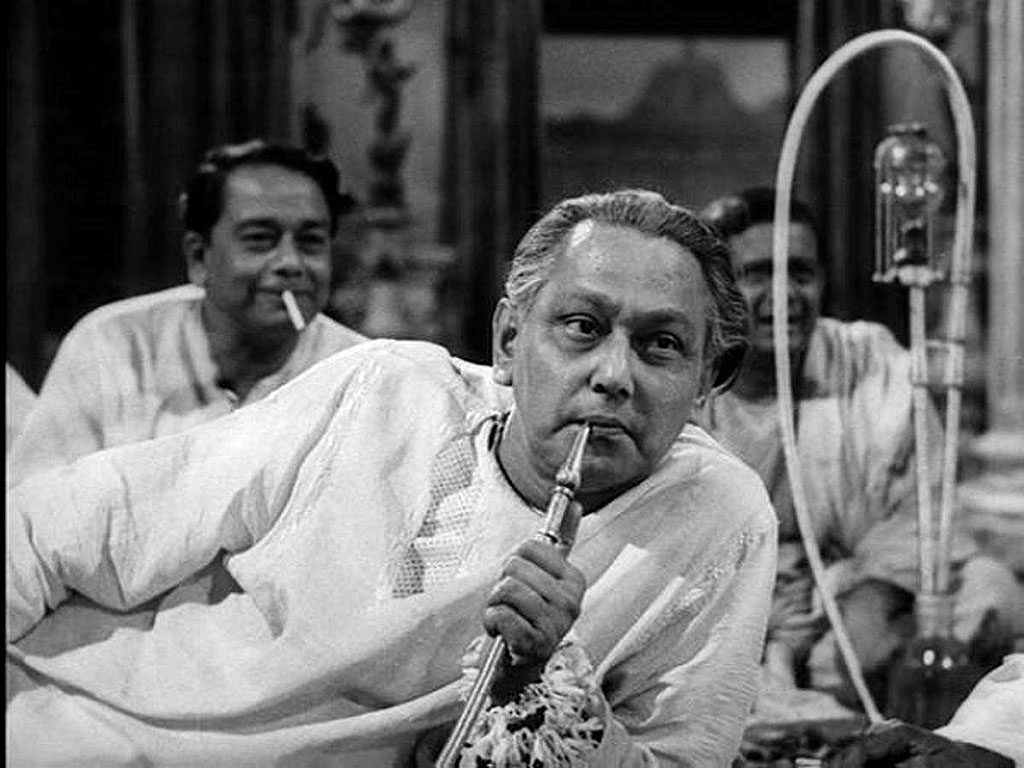Jalsaghar (The Music Room)

Summary
1930’s, Bengal. Biswambhar Roy (Chhabi Biswas) is the last in a long line of rich patriarchs. He continues to cling to his refined tastes even as his estate is diminishing. All that remains is his two loyal servants, a horse, an elephant, and the crumbling palace. On the terrace of his palace, smoking a hookah, Roy asks his old servant what month it is. He is unsettled by the festive music being played at his neighbor’s place. The occasion is the Upanayan (initiation or coming of age ceremony) of the neighbor’s son.
He recalls his own son’s initiation ceremony. We are transported back in time when Roy was in his best times of but slowly loosing his power and wealth. A great concert takes place in Roy’s imposing music room. All the guests are served drinks as they enjoy a performance by a great female classical singer. Later that night, Roy tells his wife that he is willing to spend his last coin to hear such music.
The next concert takes place on a stormy night. His wife and son have gone to her mother’s place, but are expected to return in time to join him for this musical soiree to celebrate the new year and also to spite his neighbor Ganguly. Roy looks out at the river as he is worried about his wife and son’s return by a boat on such a stormy night. A model boat falls down due to the wind. As the concert progresses, he notices an insect trapped in his glass. Worried, Roy runs out to see if his wife and son have returned. His worst fears are confirmed as the news arrives that they have drowned in the river.
Roy falls into a depression. His inability to adapt with changing times has made him into a recluse. He has closed the music room for good.
The sound of music from the neighbor’s house and a wish to demonstrate his fine taste in music to his flashy neighbor leads him to organize one last concert. The music room is opened once again. He uses all his resources to organize the concert. He relishes the music as he celebrates his victory over his neighbor and toasts his ancestors.
After all the guests have left, a drunk Roy remembers the past glory. He proudly introduces portraits of his ancestors to his servant. He notices a big spider on his own portrait. As the candles go out one by one, Roy is convinced that he too must depart with the extinguishing of the last candle. His servant assures that it is almost dawn now so he need not worry about the candles.
In a grand gesture, he mounts his horse and rides at a terrible pace to be violently thrown off. Roy dies as two servants look on tearfully.
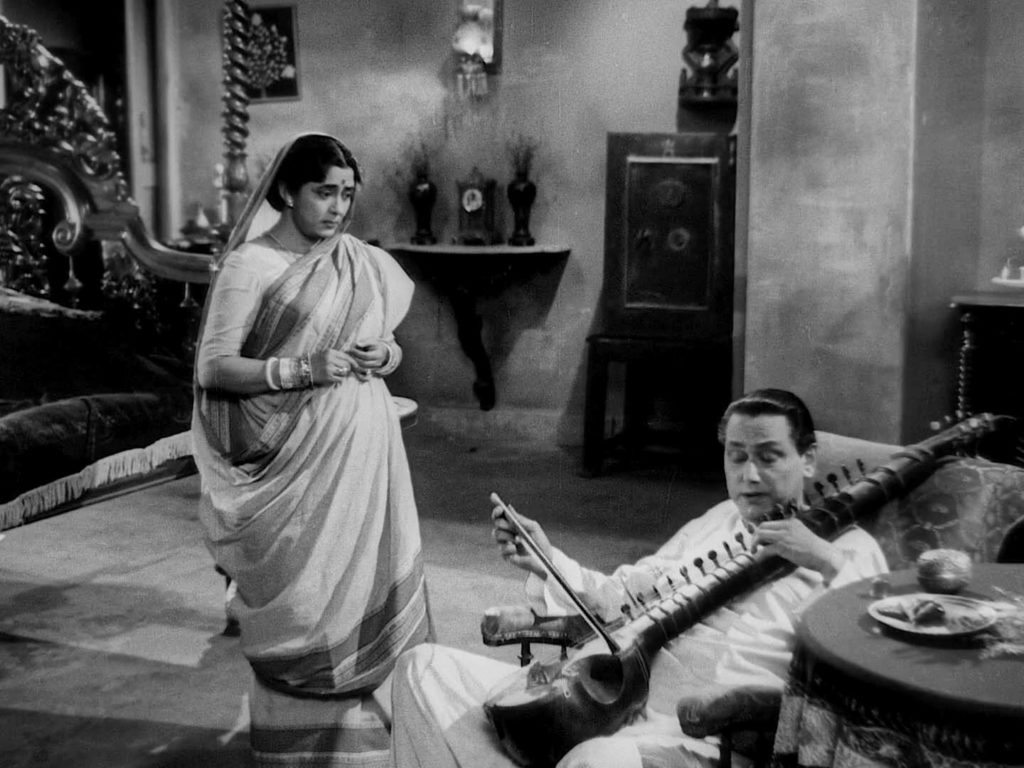
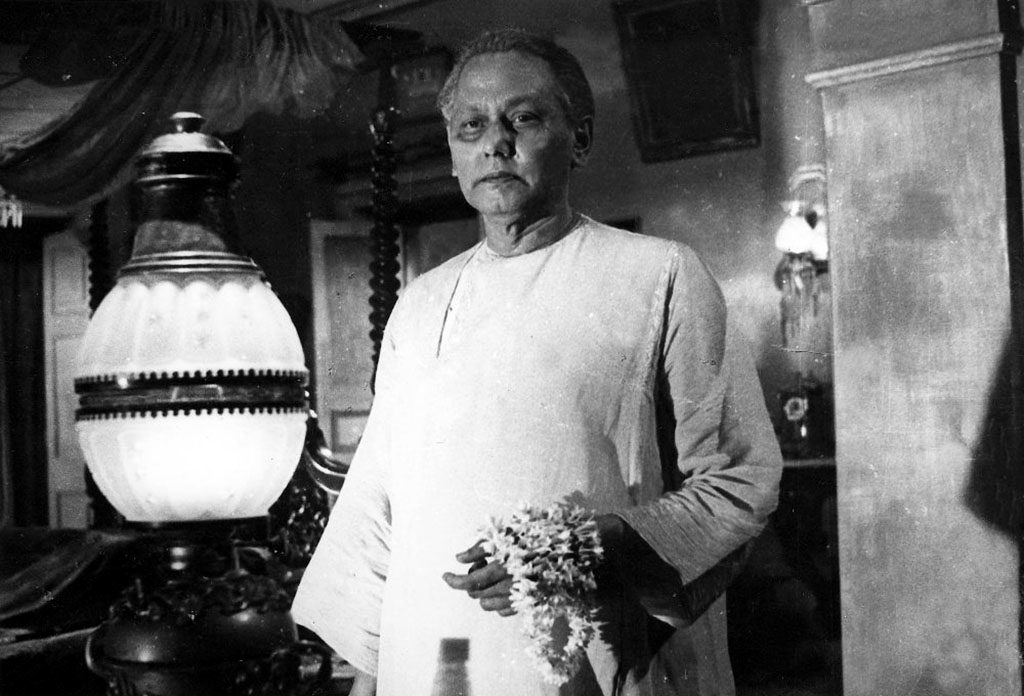
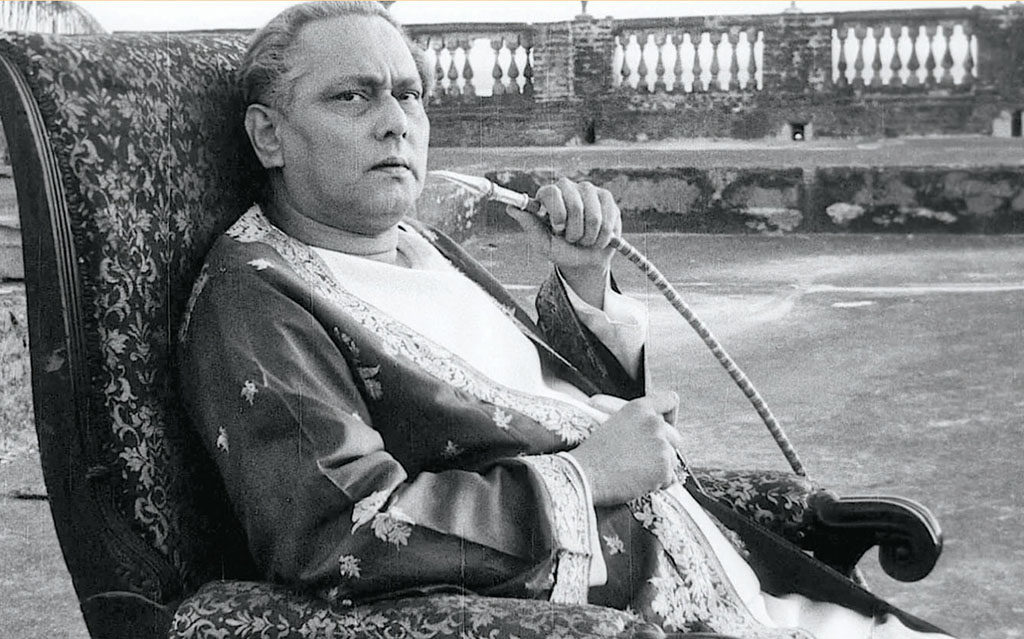
Comments
Chhabi Biswas gives a superb performance as the crumbling feudal landlord. Subrata Mitra’s cinematography and music by Ustad Vilayat Khan all contribute immensely to create the atmosphere. The camera movements reinforce the character and highlight film’s maze-like construction and Roy being trapped in his past. Interestingly, Ray began work on the screenplay with an idea of making a more ‘commercial’ film with song-n-dance sequences. It was after the box-office failure of his Aparajito, lying in bed due to a broken leg that he felt obliged to make a film within a formula that the Bengali audiences were used to. However, as he worked on the script, it “refused to take a popular shape but ended up as a serious story of decaying feudalism, embellished with music…”
In the three music concerts that Roy organises, the classical performances, come to the foreground. To the uninitiated in the Indian classical music, this aspect of the film may be a big distraction. It you don’t like the performances, these scenes may appear to be too drawn out as they did to some of the critics when the film was first released.
The film has some of the best Hindustani classical singers and musicians. (India has two systems of classical music: Hindustani, which evolved in the north, and Carnatic that is practiced in the south. Both follow a common raga system; though, a particular raga may have different names in the two systems. While Hindustani tradition loosely defines a framework and structure leaving the performer to improvise; the Carnatic tradition follows more rigidly defined ‘compositions’.)
Listening to the Indian classical music requires concentration and patience as the ‘raga’ unfolds; likewise for Jalsaghar. Don’t attempt to watch it if you are dead tired after a hard day’s work.
It was this film that led to the French to pay attention to Ray and his films. Initially the film drew mixed responses from the critics abroad.
It is tempting to draw parallels with his later film Shantranj Ke Khilari (The Chess Players, 1977), Roy in Jalsaghar (The Music Room, 1958), and Wajid Ali Shah in Shatranj Ke Khilari, both, share an obsessive and doomed love for music that leads to their destruction. However, Wajid Ali Shah is himself an accomplished artiste while Roy’s taste in music may have been due to his upbringing alone. Also, in Shatranj Ke Khilari, the British and the indifferent landlords too have a major role in the king’s down fall.
What others say…


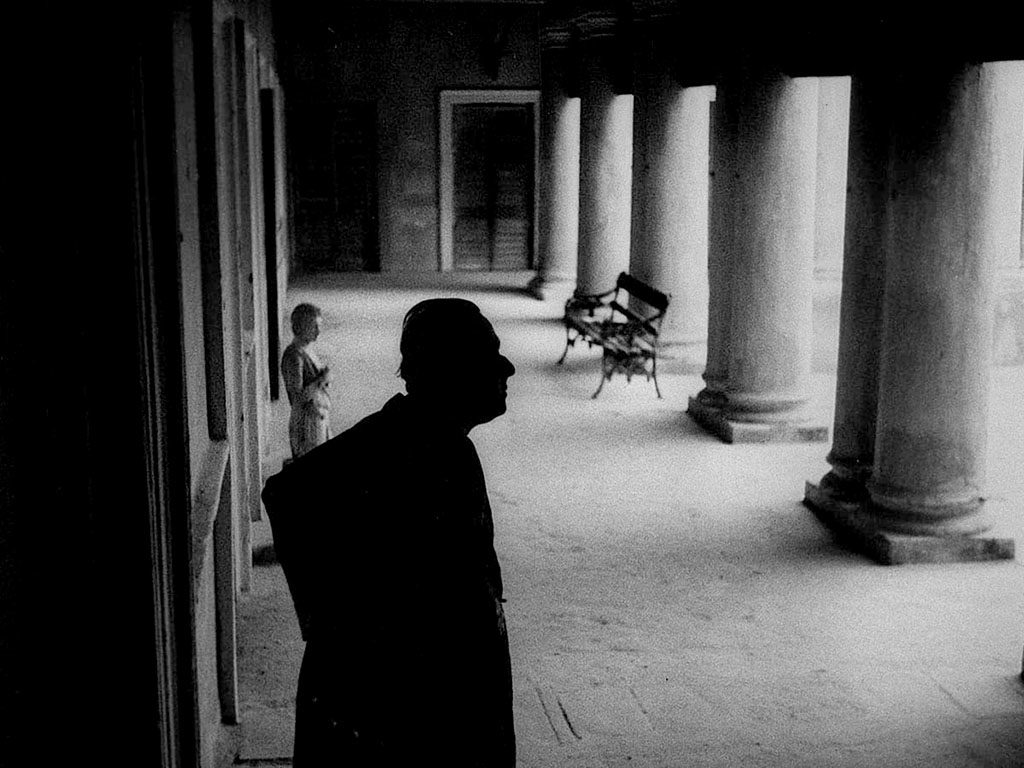
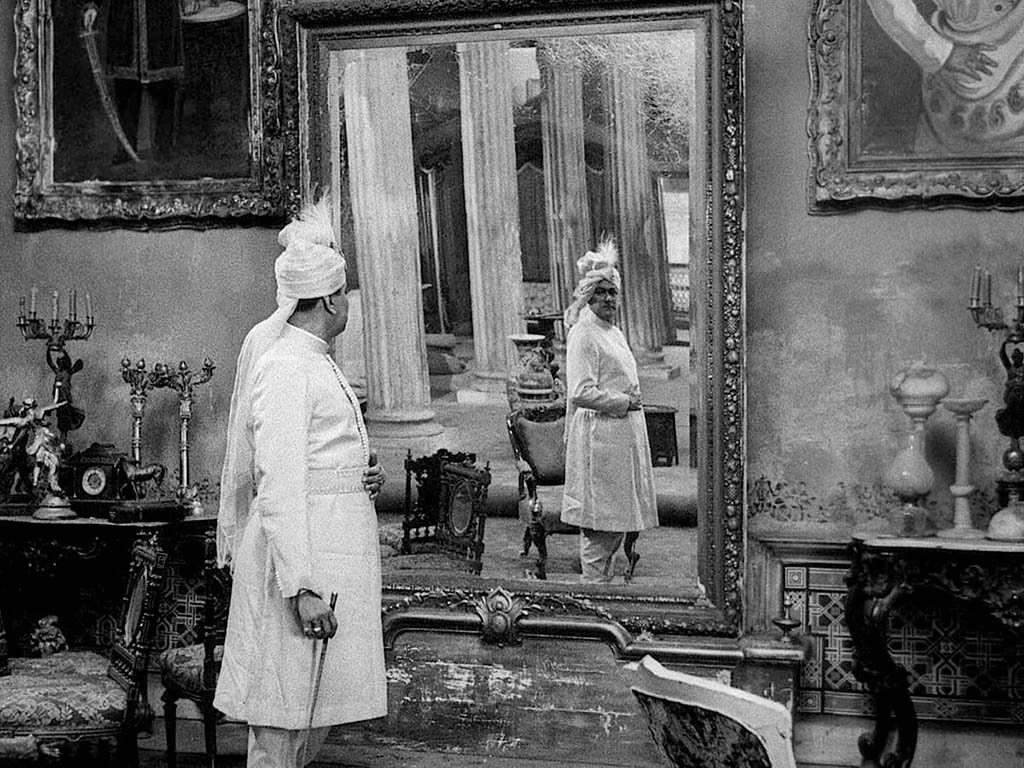
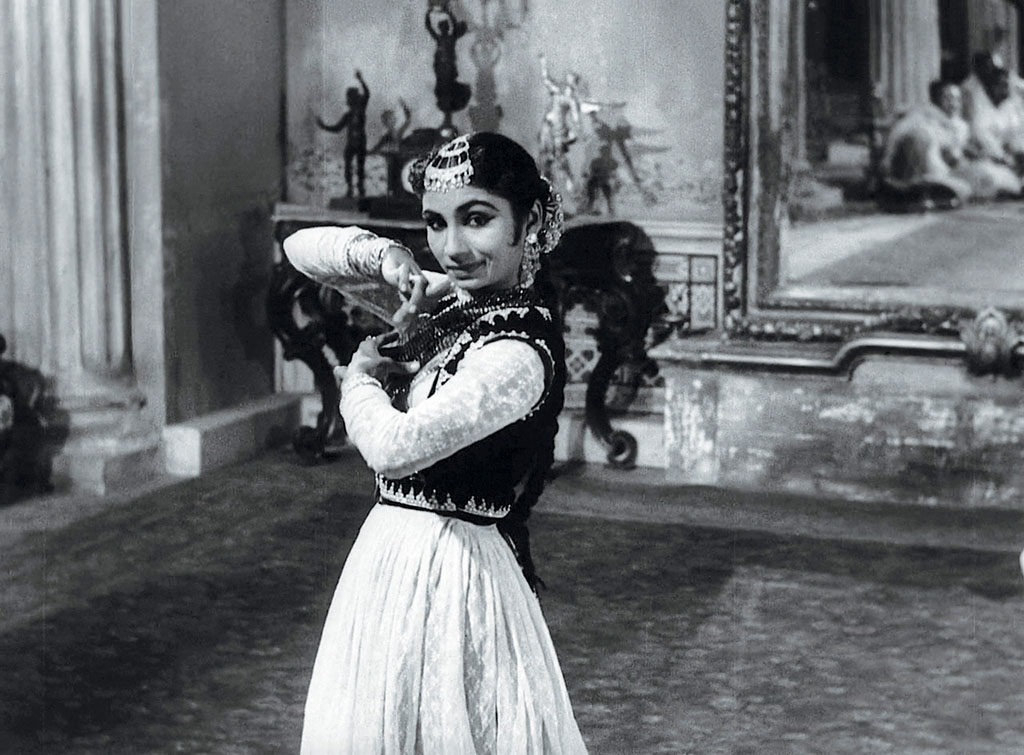
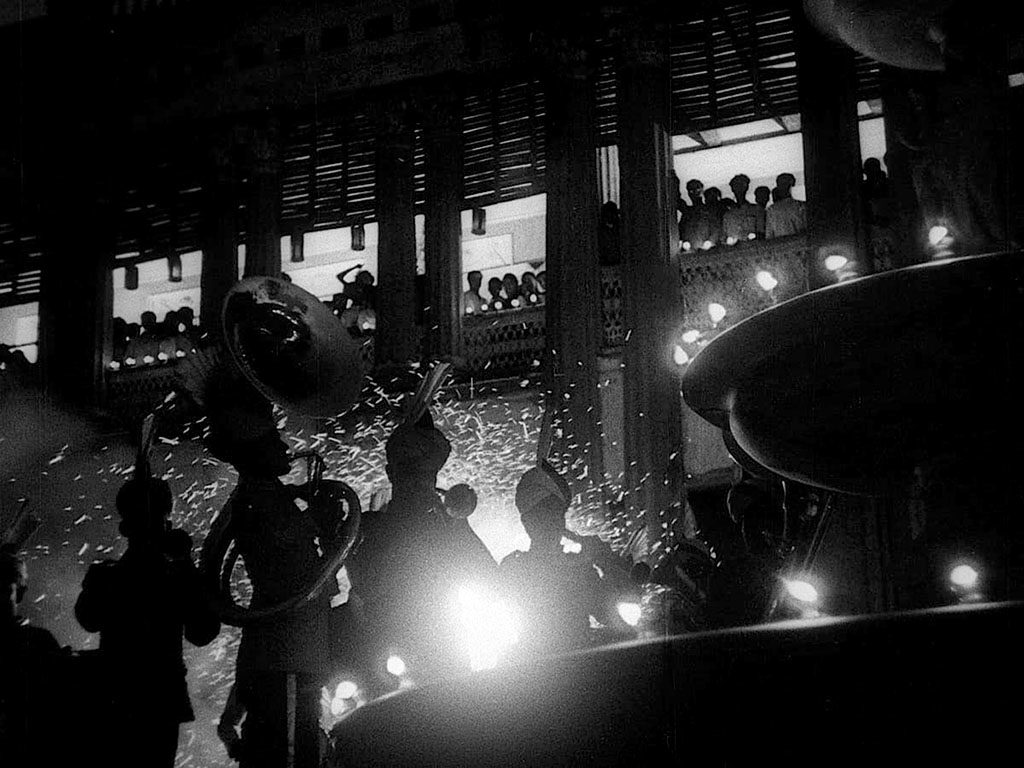
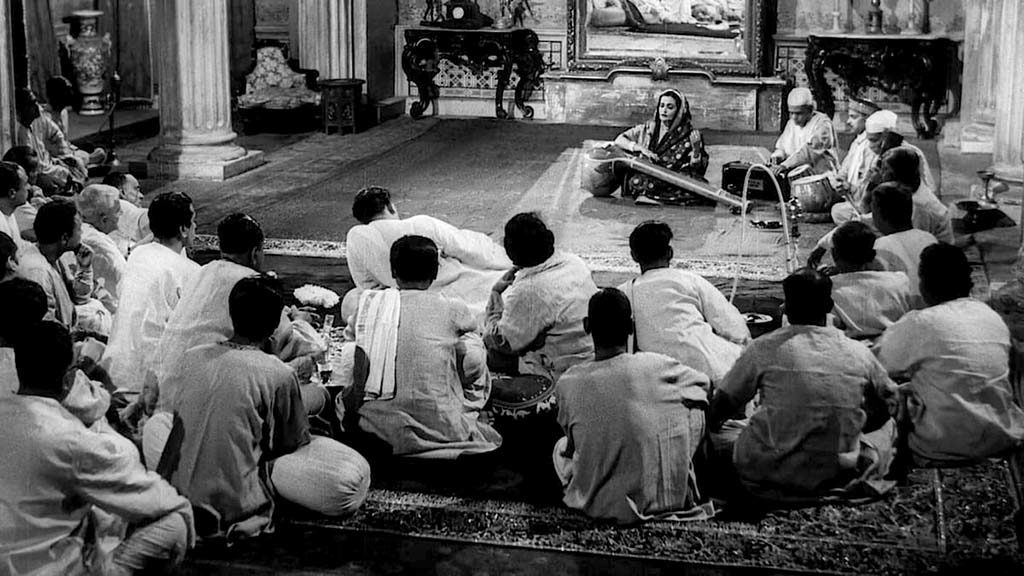
Awards
- President’s Silver Medal, New Delhi, 1959
- Silver Medal for Music, Moscow, 1959
Other Online Reviews
- Jalasaghar, Derek Malcolm, The Guardian UK
- Jalsaghar, Donato Totaro
Credits |
|
| Producer: | Satyajit Ray Productions |
| Screenplay & Direction: | Satyajit Ray; Based on the short story: ‘Jalsaghar’ by Tarasankar Banerjee. |
| Cinematography: | Subrata Mitra |
| Editing: | Dulal Dutta |
| Art Direction: | Bansi Chandragupta |
| Sound: | Durgadas Mitra |
| Music: | Vilayat Khan |
| Music & Dance performances: | Begum Akhtar, Roshan Kumari, Waheed Khan, Bismillah Khan (on screen); Dakhshinamohan Thakur, Ashish Kumar, Robin Mazumdar and Imrat Khan (off screen) |
| US Distributor: | Columbia TriStar Home Entertainment |
Cast |
|
| Biswambhar Roy: | Chhabi Biswas |
| Mahamaya, Roy’s wife: | Padma Devi |
| Khoka, Roy’s son: | Pinaki Sen Gupta |
| Mahim Ganguly, neighbor: | Gangapada Bose |
| Manager of Roy’s estate: | Tulsi Lahari |
| Ananta, Roy’s servant: | Kali Sarkar |
| Ustad Ujir Khan, Singer: | Ustad Waheed Khan |
| Krishna Bai, the dancer: | Roshan Kumari |
| Singer: | Begum Akhtar |
